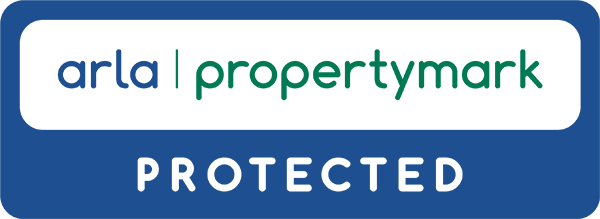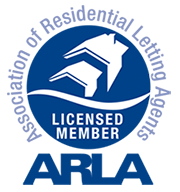First Stages of renting your property
Valuation
J W & SONS Estate Agents Ltd will initially view the property to assess its rental value. At this point we will answer any questions you may have and determine the most suitable service to meet your requirements. We will also be able to make recommendations where necessary that could potentially increase the rental value of your property. Our advice at this point is completely free and aimed at making sure you have a firm understanding of all your obligations before proceeding to let your property.
Marketing your property
Once you have decided to appoint us as your agent, one of our representatives shall visit the property in order to take some internal and external photographs. We shall use the photographs and the information we have collected to create an attractive advert which we shall display whilst marketing your property.
In order to maximise property exposure, our website is updated daily and our properties are listed on market leading websites such as Zoopla, OnTheMarket, Property Index, Facebook Marketplace, YouTube channel and many more.
Our highly trained and efficient staff will make sure that the best service is delivered to both the landlord and tenant.
![]()
![]()
Presenting the property
As the lettings market becomes more and more competitive, it is important that the property is presented in the best way possible. Without this, the property could remain empty for longer as well as affecting its rental value.
To help a rental property appeal to a wider market, we would suggest the following:
- Keep the colours in the property neutral.
- Gardens must be kept maintained (when a tenant occupies the property, the maintenance of the garden becomes their responsibility).
- Keep the equipment provided and furnishings as contemporary as possible (can still basic).
- Check for any grouting issues in places such as the bathroom. Any mould issues here can really effect a prospective tenant's decision to rent the property.
- If the property is a flat with a communal entrance and hallway, make sure that for the benefit of all tenants that this area is kept tidy and clear of debris at all times.
- Double glazing and gas central heating is another popular feature amongst prospective tenants.
- In general, try to find and rectify any damages around the property that can be easily seen or experienced.
Obtaining the tenants and referencing
Arguably the most important factor when letting the property is the prospective tenant. The whole success of letting depends on finding the right tenant. If an applicant wishes to proceed with a tenancy, J W & SONS Estate Agents Ltd will assess their suitability.
The references aim to check that each tenant is creditworthy by for example checking for CCJ’s and arrears and obtaining employer, landlord and character references. Once references have been received, we will contact you to confirm the results of this and advise of the proposed checking in date.
All necessary legal paperwork, including an inventory will be prepared and signed and any outstanding balances settled by the tenant before the tenancy commences.
Houses in Multiple Occupation
If the landlord wishes to rent their property to multiple occupants, it may mean that a licence is required before the property can be legally rented. Houses in Multiple Occupation are also referred to as “HMOs” and the purpose of the licensing scheme is to improve management and safety standards in this area of the rental sector.
It is now a mandatory duty for:
- All Local Authorities to have a licensing scheme
- Owners of certain types of HMOs to have a licence
What is a House in Multiple Occupation and do I need a licence?
A HMO is a building or part of a building which meets one of the following tests:
A - The standard test
Any building in which two or more households share basic amenities. For example toilets, kitchens, and bathrooms.
B - The self-contained flat test
Any flat in which two or more households share basic amenities. For example toilets, kitchens, and bathrooms.
C - The converted building test
Any converted building comprised of one or more units of accommodation that are not self-contained.
D - Certain converted block of flats
Any converted building comprised of self-contained flats that does not meet the 1991 Building Regulation Standards, and more than one third of the flats are occupied on short tenancies.
A House in Multiple Occupation (HMO) MUST have a licence if it fits:
A - The Standard test Or
C - The Converted building test
And
It is more than 3 storeys high (this includes basement and attic rooms)
It has five or more people living there
And
The 5 people make up more than one household (family unit)
For further information on houses in multiple occupation and how this may effect you as a landlord, please speak to one of our representatives
Selective Licensing Scheme?
Where selective licensing applies, unlike the other forms of licensing which relate to HMOs, then normally all houses within the private rented sector for that area must be licensed, except where they require to be licensed as HMOs. Non licensable HMOs must be licensed under Selective Licensing. We will advise you if your property falls within Selective Licencing Scheme but this can be checked on local authority website
Landlords Insurance
Through our association with specialist landlords’ insurers, we can offer comprehensive buildings insurance, rental income guarantee and contents insurance.
Not only does the comprehensive building insurance protect against all the things you would expect, but it is also there to help with a lot more including:
- Loss of rent and re-letting costs following flood or fire to the property up to 30% of the insured amount
- The rebuilding of your property following loss or damage
- Owner’s property liability of £5 million
Frequently Asked Questions
What is an Assured Short hold Tenancy Agreement?
The Assured Short-hold Tenancy is the default tenancy for most dwellings in England and Wales. It is a form of Assured tenancy with limited security of tenure, and an important class of residential tenancy in England and Wales. It was introduced by the Housing Act 1988, with important changes made by the Housing Act 1996.
Should I inform anyone else that I intend to let my property?
Yes, if the property is mortgaged, the bank or building society must be made aware of the intention to let the property. They will generally require details of the tenancy before giving their approval. Where the property is leasehold, the freeholder must also be informed of any intentions to let the property. It is also important that the contents and buildings insurer is made aware of any tenancy. Certain terms and conditions may need to be applied in order to keep the policy valid.
Should I let my property furnished or unfurnished?
Experience tells us that the preference is generally for a furnished accommodation. Where possible, we would advise landlords to offer their property furnished. We would advise that if the property is to be let furnished, it should include items such as sofas, tables, basic kitchen appliances, wardrobes, beds, curtains and carpets.
What is an inventory?
The inventory provides a fair and accurate record of the contents of the property and their condition. It also records the condition of the fabric of the internal and external parts of the property. Photographs are taken to show the condition of items / décor at the time of the check in. These photographs’ shall be kept on file during the tenancy. At the check out assessment a representative will attend to make a comparative assessment of the property against the inventory/check–in. If there are any additional damages that fall beyond the definition of “fair wear and tear”, it is possible that deductions may be made from the deposit before it is returned to the tenant/s.
How will J W & SONS Estate Agents Ltd manage my investment?
We aim to provide a smooth running and consistent service where the property is continuously let and maintained. The aim is to keep the property in the same condition it is at the beginning of a lease until the end. Of course, in reality, tenanted properties are prone to additional wear and tear, and in situations where this may affect the rental value, we shall contact you to suggest possible remedies to recover the lost value. We will also deal with any direct maintenance issues with the tenant, arranging any maintenance work or repairs where it is proven that the landlord is responsible.
When and how will I receive my rent if J W & SONS Estate Agents Ltd manages the property?
We pay our landlords on the 5th and 20th of each month, therefore any rent due shall be processed on these dates. This shall be paid electronically into your chosen account.
How do I reclaim possession of my property?
The landlord has the right to terminate the tenancy by using a "section 21 notice", which in practice results in a minimum notice period of 2 months. Although there is no minimum length for which an assured short-hold tenancy may be granted, such a tenancy may not be ended by a section 21 notice in the first 6 months from the beginning of the tenancy and cannot be served during the first 4 months of the tenancy. Such notice has expiry of 6 moths of the date it has been served.

 The Gas Safety (Installation and Use) Regulations 1998 say landlords must ensure that gas appliances, fittings and flues are safe for tenant’s use and that installation, maintenance and annual safety checks are carried out by a technician registered with the Gas Safety Register (which superseded CORGI on 1st April 2009).
The Gas Safety (Installation and Use) Regulations 1998 say landlords must ensure that gas appliances, fittings and flues are safe for tenant’s use and that installation, maintenance and annual safety checks are carried out by a technician registered with the Gas Safety Register (which superseded CORGI on 1st April 2009). Electrical Safety Standards in the Private Rented Sector (England) Regulations 2020 say Landlords of privately rented accommodation must ensure national standards for electrical safety are met and provide the tenant with Electrical Installation Condition Report or EICR.
Electrical Safety Standards in the Private Rented Sector (England) Regulations 2020 say Landlords of privately rented accommodation must ensure national standards for electrical safety are met and provide the tenant with Electrical Installation Condition Report or EICR. These include any of the following which contain upholstery:
These include any of the following which contain upholstery: With effect from 1st October 2008, all new tenancies require an Energy Performance Certificate. Their purpose is to determine how energy efficient homes are on a scale of A-G. The most efficient homes - which should have the lowest fuel bills - are in band A. The certificate uses the same scale to define the impact a home has on the environment. Better-rated homes should have less impact through carbon dioxide (CO2) emissions. The average property in the UK is in bands D-E for both ratings.
With effect from 1st October 2008, all new tenancies require an Energy Performance Certificate. Their purpose is to determine how energy efficient homes are on a scale of A-G. The most efficient homes - which should have the lowest fuel bills - are in band A. The certificate uses the same scale to define the impact a home has on the environment. Better-rated homes should have less impact through carbon dioxide (CO2) emissions. The average property in the UK is in bands D-E for both ratings. Custodial scheme
Custodial scheme Tenancy Deposit Solutions Ltd (TDSL)
Tenancy Deposit Solutions Ltd (TDSL)


